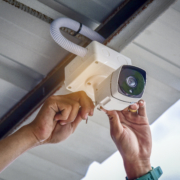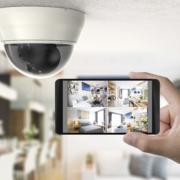Advantages of CCTV
What is CCTV?
CCTV is an abbreviation for closed-circuit television. A CCTV system uses a network of cameras to monitor and record activity in a given area. The footage captured by the cameras can be viewed remotely, either in real-time or at a later time. There are many advantages to using CCTV, which is why it is such a popular security measure for both homes and businesses. If you are considering installing CCTV at your home or business, be sure to speak to a professional to get the best advice on which system would be right for you. In this article we’ll explore some of the most notable advantages of CCTV.
What are the Types of CCTV?
The most common type of CCTV is the analogue system, which uses a single camera to record footage. This footage is then transmitted to a monitor, where it can be viewed in real-time or playback at a later time. IP cameras are the newest type of CCTV technology and they offer a number of advantages over analogue systems. IP cameras use a network to transmit footage, which means that they can be viewed remotely from any internet-connected device. This is perfect for businesses who need to monitor their premises from multiple locations.
Advantages of CCTV
Deterrence: The very presence of CCTV cameras can be enough to deter would-be criminals from targeting a property. If potential intruders know that they are being watched, they are less likely to take the risk.
Evidence gathering: In the event that a crime is committed, footage from CCTV cameras can be used as evidence to help identify and apprehend the perpetrator.
Monitoring: CCTV footage can be monitored in real-time, which allows for quick intervention if any suspicious or criminal activity is spotted. Alternatively, footage can be reviewed at a later time to see what happened in a particular area.
Security: CCTV cameras can provide an extra layer of security, making it more difficult for intruders to gain access to a property.
CCTV DVR Vs NVR
There are two main types of CCTV recorder, the DVR (Digital Video Recorder) and the NVR (Network Video Recorder). DVRs are designed to work with analogue cameras, while NVRs are designed for use with IP cameras.
DVRs are very similar to a VCR in that they record video onto a hard drive, allowing you to playback and fast-forward the footage. NVRs also record onto a hard drive, but they do so using digital files rather than analogue ones. This means that NVRs can store more footage than DVRs and that the footage can be of a higher quality.
For our detailed article on DVR vs NVR follow this link.
DVR & NVR Advantages & Disadvantages
NVRs also have the advantage of being able to connect to the internet, which means that you can view your CCTV footage from anywhere in the world. DVRs can also be connected to the internet, but they require the use of an analogue-to-digital converter.
The second thing to consider is the quality of the footage you want to record. If you only need to record low-quality footage, then a DVR will be sufficient. However, if you want to record high-quality footage, then you will need an NVR.
DVRs can store more footage than NVRs, but the footage is of a lower quality.
The fourth thing to consider is whether or not you need to be able to view your CCTV footage from anywhere in the world. If you only need to view your footage from within your home or office, then a DVR will be sufficient. However, if you need to be able to view your footage from anywhere in the world, then you will need an NVR.
If you need to be able to view your CCTV footage from anywhere in the world, then you will need an NVR. However, if you only need to view your footage from within your home, then a DVR will be sufficient. The price difference between a DVR and an NVR will vary depending on the features and quality of the recorder. In general, NVRs are more expensive than DVRs.





